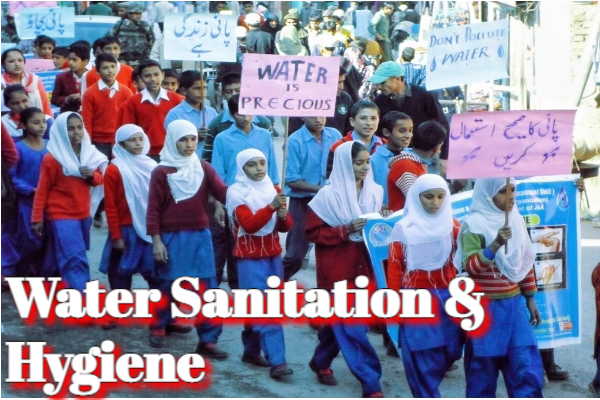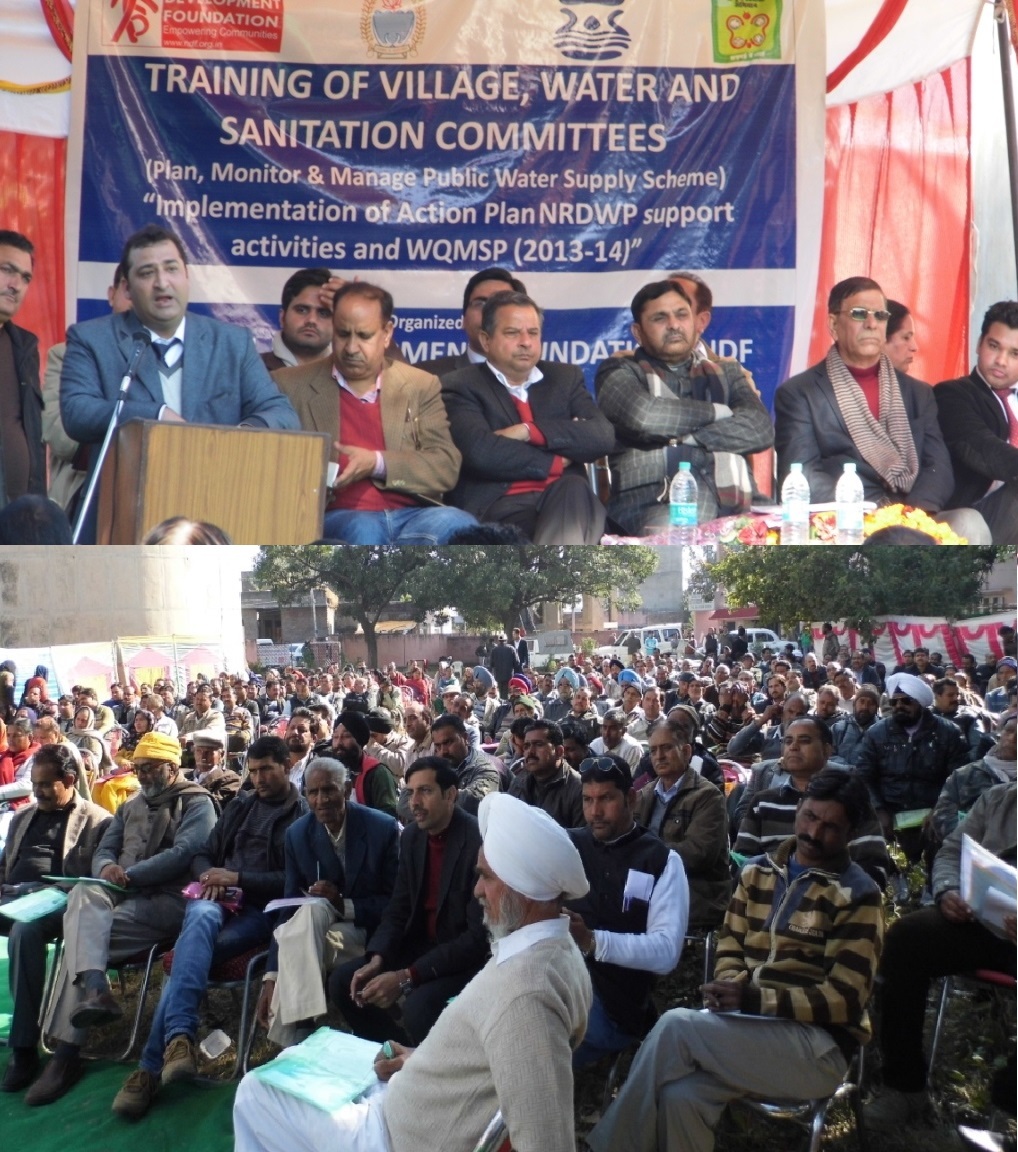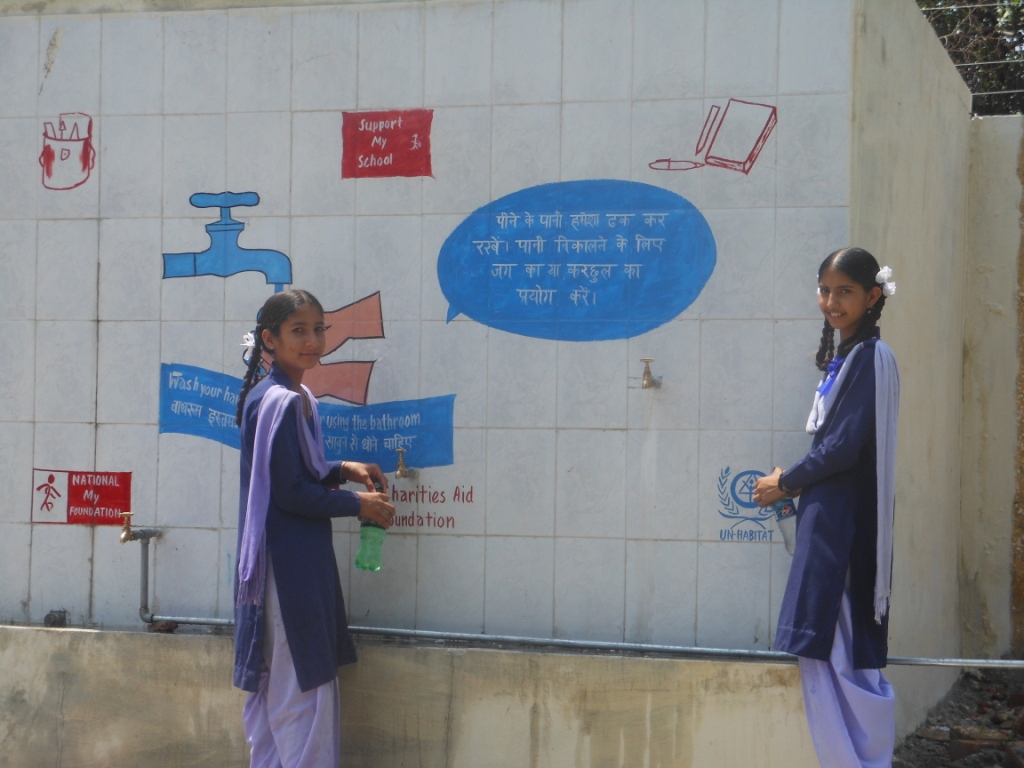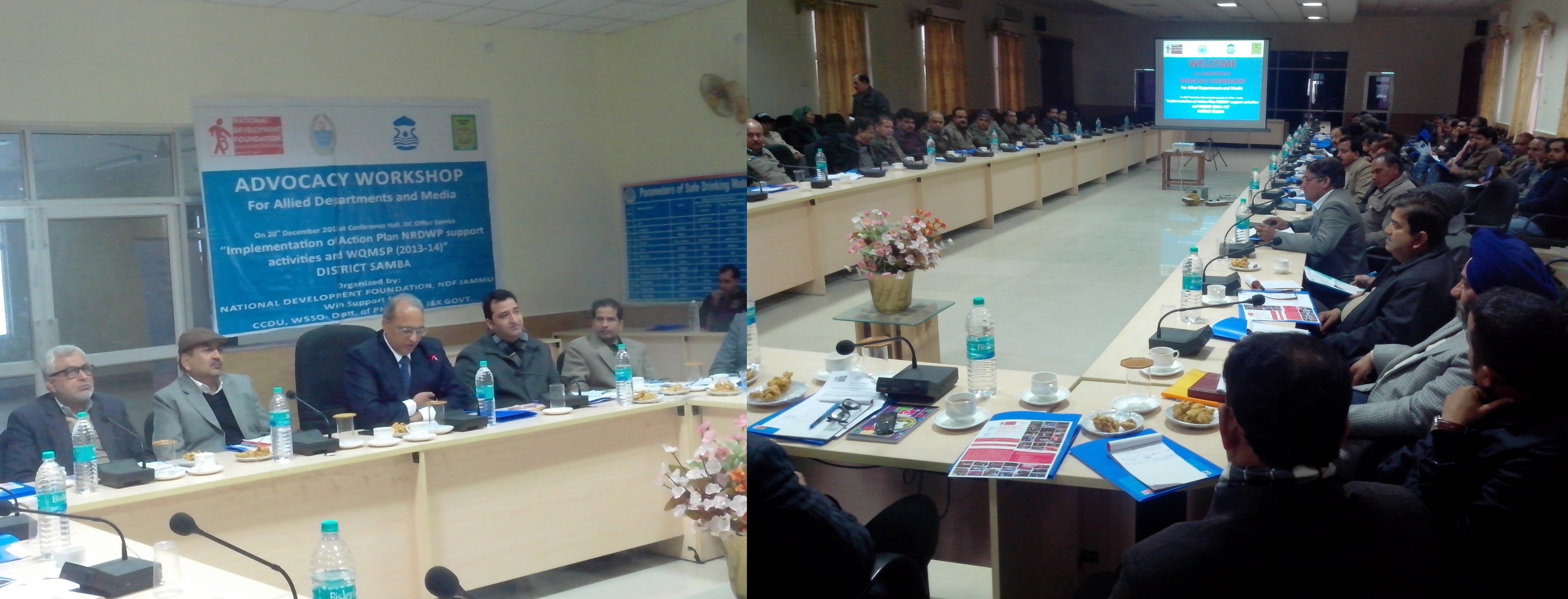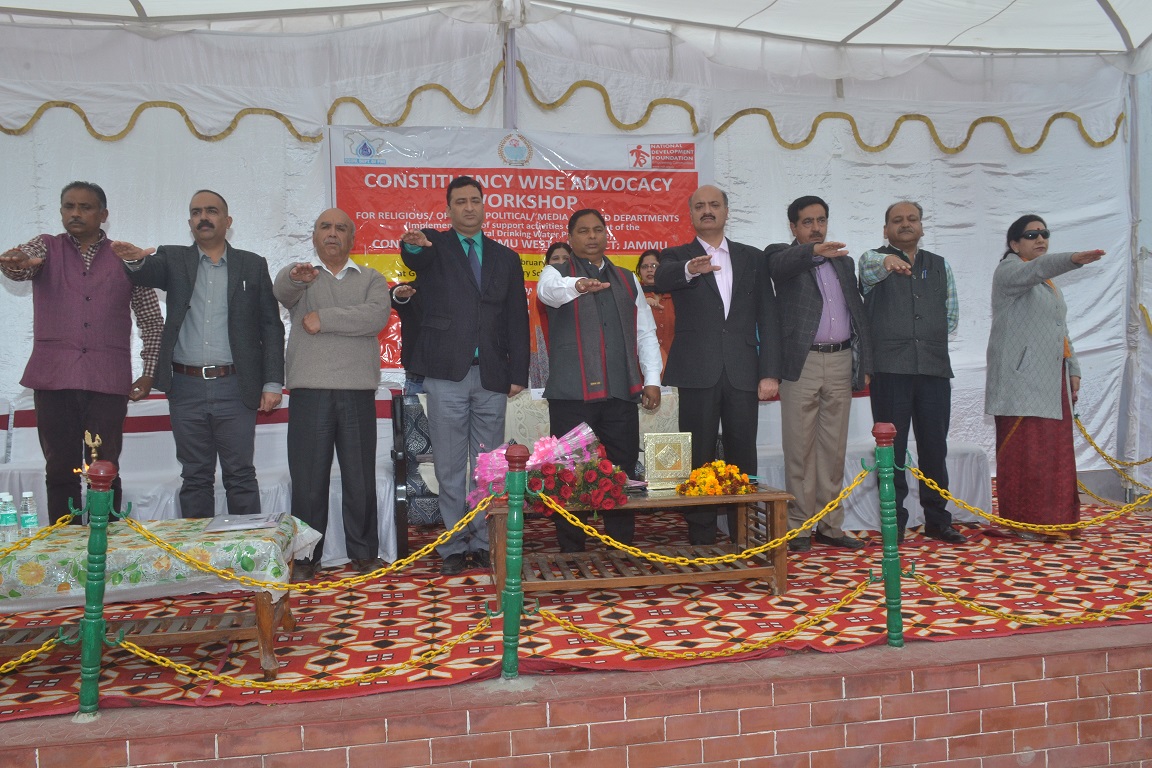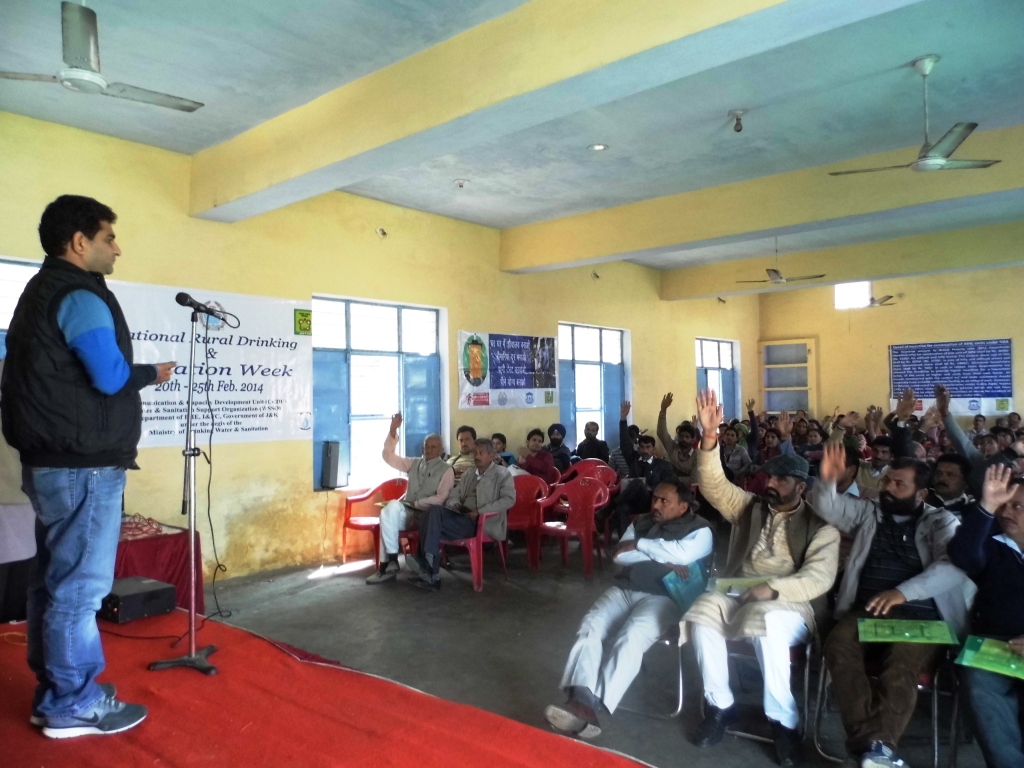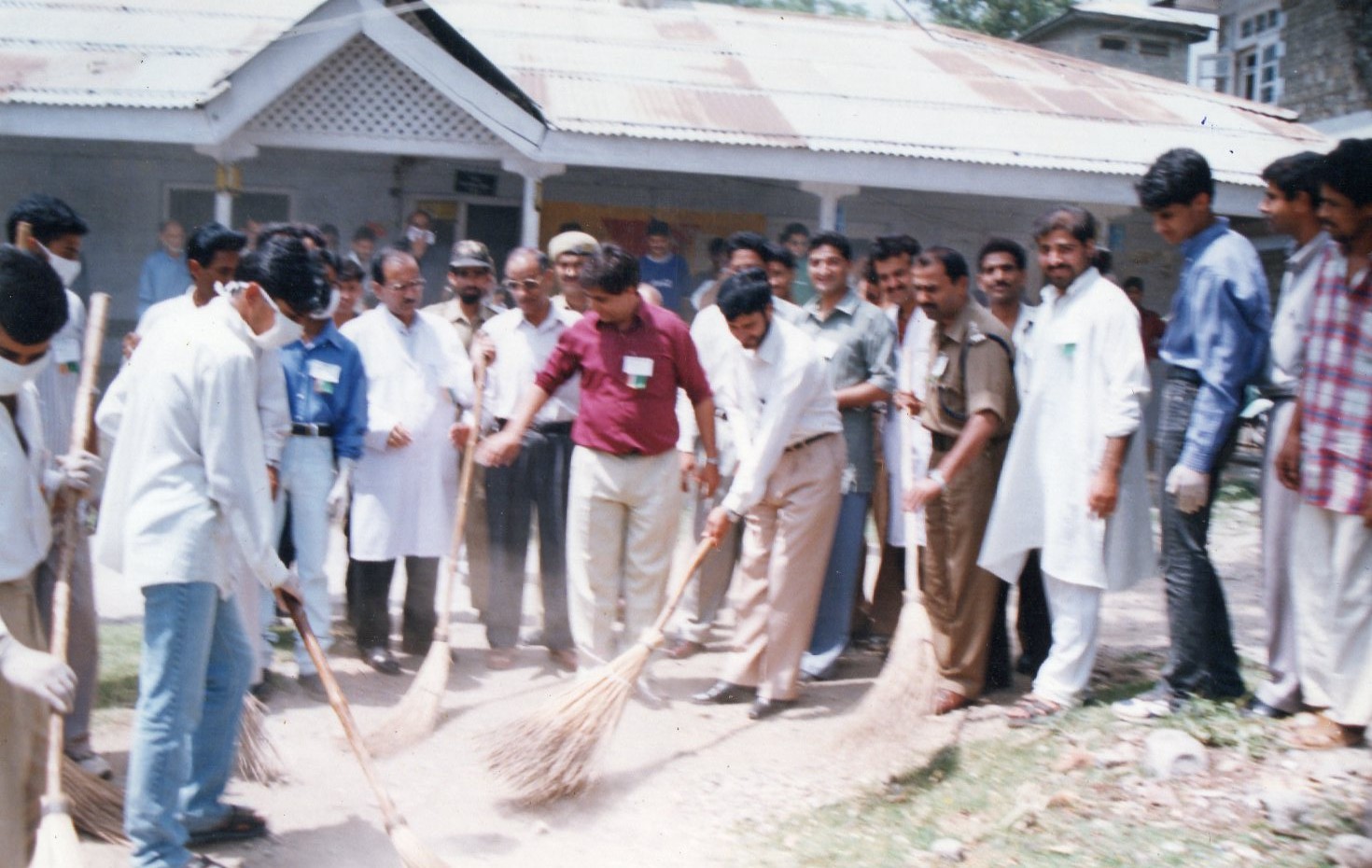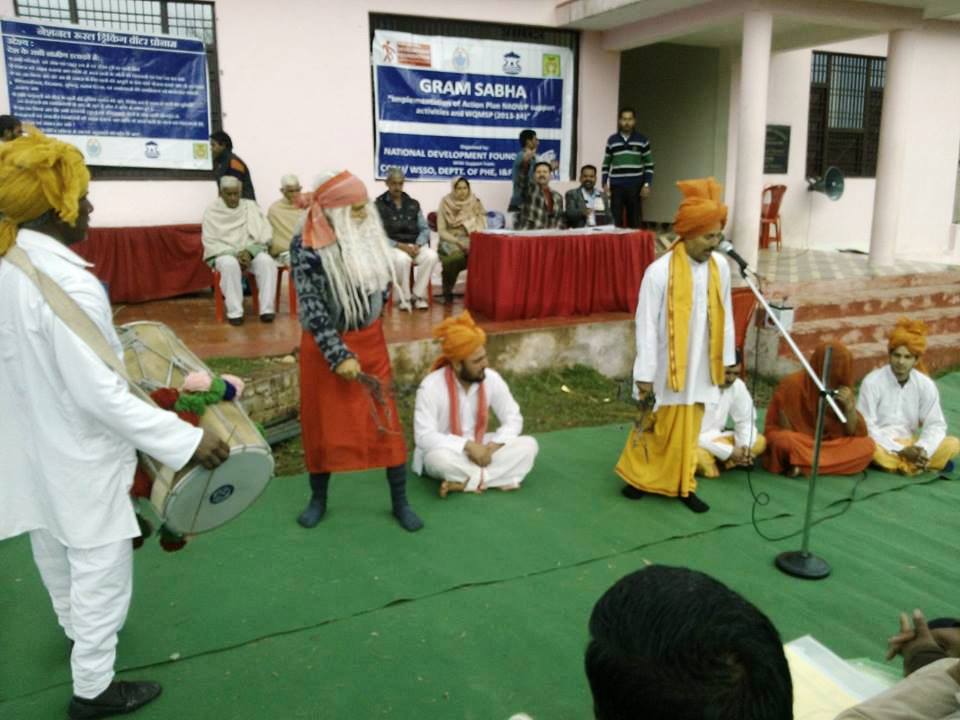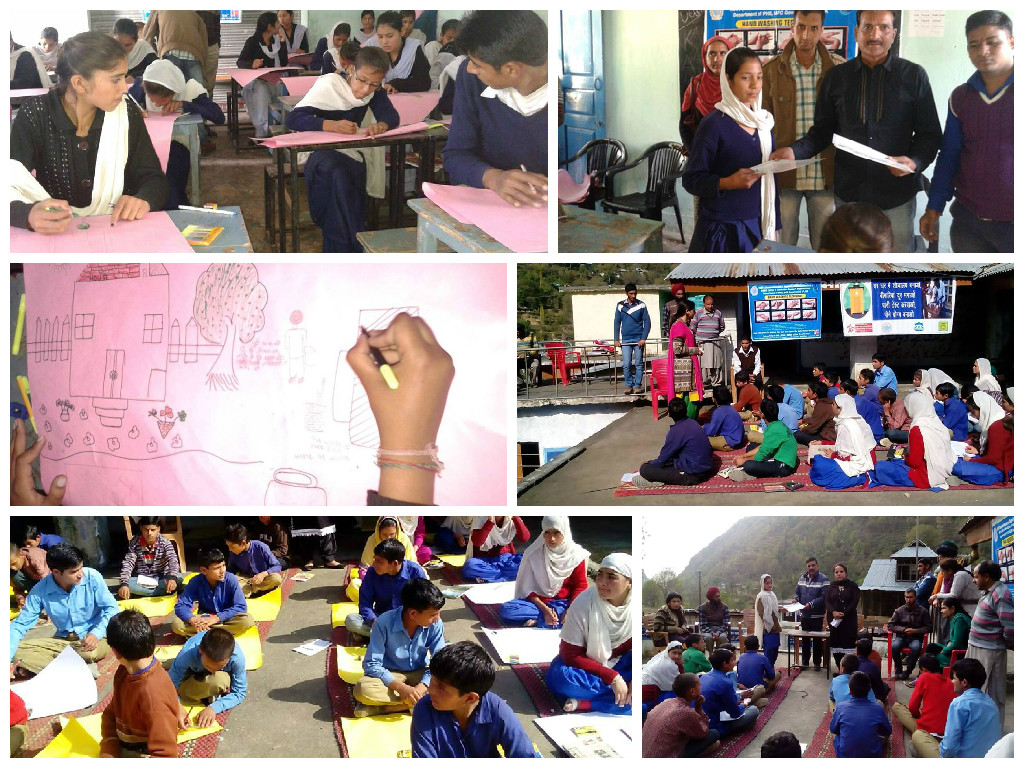WATER, SANITATION AND HYGIENE
Water, Sanitation and Hygiene (WASH) is at the centre of our work. Through our rapid and effective WASH interventions, NDF intends to save the lives of children and Communities in times of stability and humanitarian crisis. We look at WASH holistically. Water quality, safe sanitation, and hygiene behaviour are all linked.
We work to contribute towards achieving SDGs by improving universal access to safe and affordable drinking water for Children and communities; access to adequate sanitation and hygiene for all; and support and strengthen the participation of local communities in improving water and sanitation management. Our WASH intervention improve the overall quality of life by contributing to numerous other SDG goals - improve health outcomes by reducing child mortality and morbidity and enhancing child and maternal survival, advance education, reduce malnutrition, drive economic growth and reduce poverty, improve urban and rural services, contribute to gender equality, build resilient communities and reduce the impact of climate change.
Each day, a large number of Children and adults die due to preventable water and sanitation-related diarrhoeal diseases across world. The degradation of water resources due to drying rivers as a result of climate change, pollution and over-use is increasingly affecting children's access to safe and sustainable drinking water. Poor hygiene, open defecation, and lack of access to safe water and sanitation services are the major causes of child mortality and morbidity and also contribute to under nutrition and stunting of children. It also acts as barriers to education for girls and to economic opportunity for the poor. Stunting, or chronic malnutrition, is accompanied by a host of problems—weak immune systems, risk of sickness and disease, poor cognitive and physical development, and a greater risk of dying before age 5.
One of the widely recognized reasons for children dropping out of schools is the lack of basic, age-appropriate, gender-and disability-friendly sanitation facilities, clean drinking water and a healthy school environment. Girls are excluded from full participation in schools due to absence of basic sanitation facilities in schools. They miss school days every month during their period and suffer from urinary tract infections arising from delayed urination or reduced water intake to avoid the need to urinate to cope with lack of access to toilets. They remain under the threat of sexual assault when use the open to relieve themselves in lack of toilets.
NDF actively engages with children, their families and community members to develop their capacities on WASH related activities and programmes to inculcate behaviour change among them to improve the existing practices in WASH and support the local communities in improving water and sanitation management.
We advocate and work closely with the government of J&K to ensure children and their communities' have access to quality water and sanitation facilities within schools, homes and communities at large.
We are committed to:
NDF aims to improve general public health and transform the lives of communities by improving their access to safe water, sanitation and hygiene; work and build partnerships with government and non-governmental stakeholders to empower and enable communities to demonstrate sustainable WASH solutions to influence policy; improve access to water supply by leveraging government resources; construct toilets to stop open defecation for universal toilet use at households, school, institutions and public places; improve hygiene practices by promoting knowledge and motivating change on main hygiene behaviours; strengthening linkages between government WASH facilities/schemes and communities; and promote safe waste management and disposal
Through our Water, Sanitation and Hygiene work we focus on:
WASH in schools
We believe WASH directly influence the education system as healthy body creates a healthy mind. When children suffer from the chronic diseases, they are unable to maintain the regular pace of studies. We intent to ensure Safe drinking water, better sanitation and improved hygiene practices in schools to increase school attendance and academic performance of children to improve overall health and education of children.
Through our WASH programme in schools, we intent to reduce disease incidences; improve drinking water systems; promote and support children's access to age-gender-disability friendly functional toilets and hand-washing facilities; promote and practice of hand-washing with soap to prevent infections; educate girls on menstrual hygiene management - a key issue that particularly affects the ability of girls to stay in school; and promote waste management and clean school environment. With the support of our partners and donors, we are able to demonstrate these promising models for replication and scaling up.
NDF advocate and work closely with the government of J&K to encourage WASH promotion in schools to improve children's access to adequate WASH facilities in schools. We run campaign to achieve universal access to water, sanitation and hygiene in schools.
We work with students, teachers, School Management Committees and Village Education Committees to improve their understanding and develop their capacities on WASH related activities and programme to ensure quality WASH practices in schools. We engage with children in activities that inculcate behaviour change related to WASH and empower them to be the agents of change within their families and communities. We lay great emphasis on use of effective and creative communication to create awareness and ensure active participation of children, teachers and School Management in WASH programmes at schools through age-gender appropriate IEC material.
To address gender issues, we ensure strong participation of girls in WASH promotion activities. Through special awareness sessions and health camps for girls we create awareness on Menstrual Hygiene Management. We empower girls to say 'NO' to traditional unhygienic practices and encourage them to adapt to healthy and hygienic practices including use sanitary pads during their periods.
Hand washing with soap is a cost-effective way to prevent disease and health problems ranging from diarrheal diseases to emerging global health threats. We increase awareness and understanding of students on importance of hand washing with soap and engage with them in activities that promote and practice hand washing with soap to prevent infections and save lives.
WASH in Community
Community engagement is the key in all our WASH programmes since every community has the potential to bring about social change. Recognising their deep understanding and knowledge about their context, we work closely with them to ensure positive health outcomes. We develop their capacities and encourage them to take joint initiatives for improving children and their communities' access to WASH facilities. We work to educate children and their family's hygiene practices and healthy habits to inculcate behaviour change towards WASH.
NDF takes a comprehensive approach to Water, Sanitation and Hygiene (WASH) by coupling infrastructure development, community mobilization and behaviour change communications to improve sanitation and hygiene practices. We focus on awareness-raising and hygiene promotion using Information, Education and Communication (IEC) to improve people's knowledge mostly through health messages for inculcating behaviour change among communities.
We collaborate and work closely with the Department of Public Health Engineering Irrigation and Flood Control, Communication and Capacity Development unit J&K to educate communities including children, youth and women, PRIs, SMCs/VECs, religious leader, allied departments, political leaders and representatives on water borne diseases and WASH to trigger demand from citizens and local government bodies for solutions.
We support the five-year Swachh Bharat (Clean India) Mission implemented by Govt. of India with the goal of achieving an open defecation free (ODF) India. We work closely with the Government of J&K, children and their families and communities at large to improve access to sustainable water and sanitation services and promotion of hygiene for all especially girls and other vulnerable children. We work with community members in designing community toilets. Community members especially children promote good hand washing habits and encourage neighbours to stop defecating in the open. We pilot innovative solutions and support government to scale up successful approaches.
Milestones achieved in WASH:
- 358455 people were aware about the WASH in 5 Districts through different activities (Like Mass awareness, through PAS system, School Competitions ect.)
- 75,907 community members including 12,348 children have adopted safe and healthy water, sanitation and hygiene practices in 490 villages
- 5,032 children in 268 schools have improved access to WASH facilities
- 7,119 members of 237 Village Water Sanitation Committees trained on safe and healthy WASH practices
- 4,110 members of 443 PRIs and 1,836 grass root worker of PH.E department trained on WASH, water testing and managing water supply schemes
- 36,000 water connections tested from source to mouth in 5 districts.
